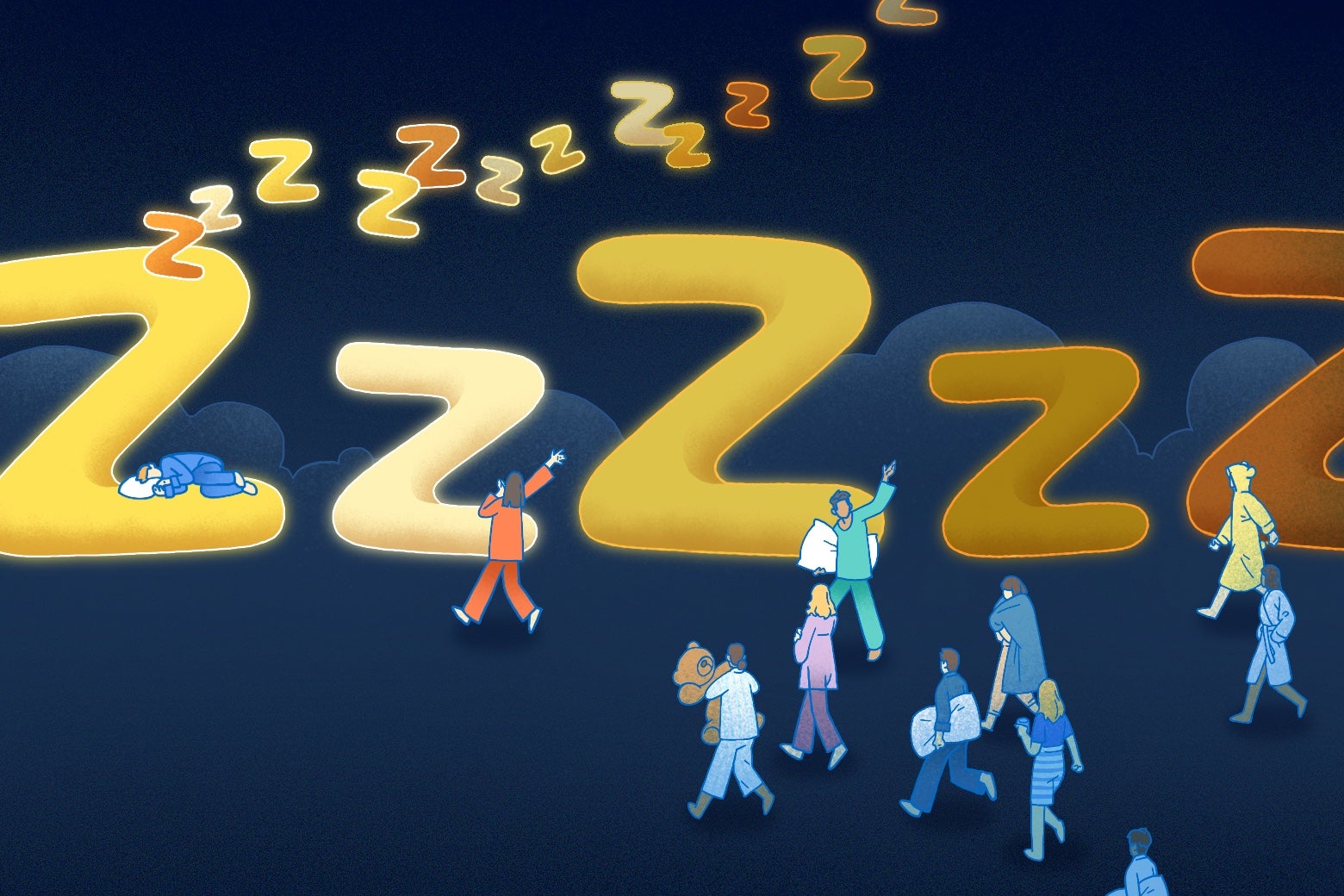
"Over the past few years, sleep seems to have gone from, well, a pretty standard human fixture to a hack-ready wellness problem that every lifestyle brand, tech company, and Instagram-famous 'coach' is ready to help you optimize. This summer alone, Slate has heard from a physician begging you to seek cognitive behavioral therapy for insomnia and a new separatee encouraging couples to try sleeping alone."
"I've never been a good sleeper, and a racing mind in the middle of the night is the No. 1 reason. I've tried breathing exercises, meditation, and basically anything else that the internet has suggested, with very little success. The only thing that works with any reliability for me is literally taking control of the narrative and telling myself a story. If I wake up from a dream, I will try to continue the story of the dream (not nightmares, of course!). If I wasn't dreaming, I will pick a recent or recurring dream and go from there. It has a particular hypnotic quality, leaving me effectively, and pretty efficiently, lulled."
Sleep has become a consumerized wellness target, with brands, tech, and coaches offering optimization solutions. Practical clinical suggestions include cognitive behavioral therapy for insomnia and experimenting with separate sleeping arrangements. Staff report diverse nocturnal difficulties—falling asleep, staying asleep, and coping without sleep aids—and widespread trial of common techniques like breathing exercises and meditation with mixed results. Some people find success by deliberately manipulating mental activity: continuing dream narratives or tricking the brain into surrendering to sleep. A subset of individualized remedies yields reliable relief, though effectiveness varies by person and specific insomnia triggers.
Read at Slate Magazine
Unable to calculate read time
Collection
[
|
...
]